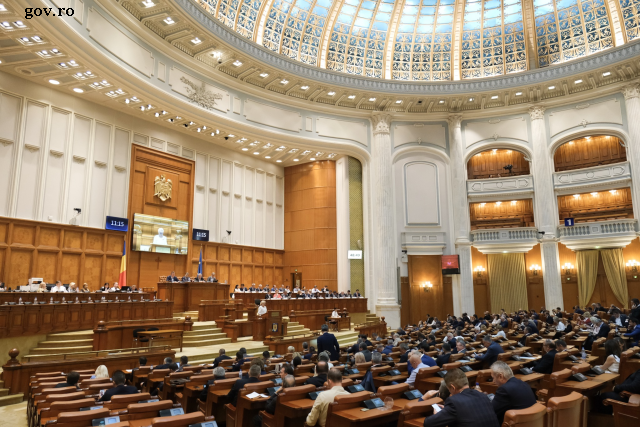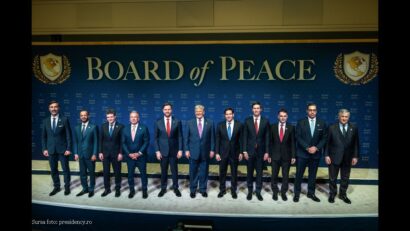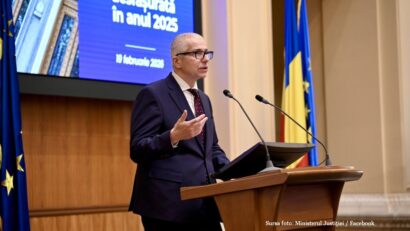Government dismissed following no-confidence vote
Parliament passes no-confidence motion tabled by the Opposition against the Social Democratic cabinet.

Bogdan Matei, 10.10.2019, 14:49
2019 has been a dark year for the party that was in a power position for 3 decades in post-Communist Romania. In May, the Social Democratic Party lost the elections for the European Parliament by a large margin, with the Liberals in opposition emerging as winners. The next day, Liviu Dragnea, leader of the party and of its governmental coalition with the Alliance of Liberals and Democrats, was sentenced and imprisoned for corruption. Last month, ALDE left the ruling coalition, and the Cabinet headed by Viorica Dancila, the new president of the Social Democratic Party, turned into a minority government. A candidate in this Novembers presidential election, Mrs Dancila is clearly outrun in opinion polls by the incumbent president Klaus Iohannis. And this Thursday, Viorica Dancila and her team lost the executive, after Parliament adopted a no-confidence motion tabled by the Liberals in Opposition.
Entitled “To rebuild Romania, the Dancila government must be urgently dismissed”, the motion was voted by 238 deputies and senators, after being already endorsed by MPs from across the political spectrum, including the National Liberal Party, the Save Romania Union, the Peoples Movement Party, the Democratic Union of Ethnic Hungarians in Romania, Pro Romania, the Alliance of Liberals and Democrats, the group of ethnic minorities, an independent MP and even Social Democrat MPs. 233 votes were enough for the motion to pass and for the government to fall. The signatories described the government as the most toxic in the last 30 years and that they would replace it with a responsible government and governing programme focused on developing and modernising the country and ensuring real prosperity for each Romanian citizen. Constitutionally, its president Klaus Iohannis who will play an important role at this point. He is supposed to hold talks with all parliamentary parties before appointing a new prime minister. The prime minister designate then has ten days to form a cabinet and come up with a governing programme, which he or she will then submit to Parliament for a vote of confidence.
One option is for the Government to stay, in an interim position and with limited responsibilities, until after the presidential elections, and subsequently the next president will designate the new prime-minister, who in turn will seek to get majority in Parliament. Early elections are possible too, if the MPs do not endorse the formation of the new Government within 60 days since the first request and reject two investiture requests. Political pundits speak of the end of an era. In December 2016, the Social Democratic Party came back to power after winning the parliamentary elections with 45%, which was a record. Later, the leader that had led them to victory, Liviu Dragnea, devoured two of his own governments, irritated by the prime-ministers lack of docility. He removed Sorin Grindeanu by means of a no-confidence motion filed by his own party, which was quite unprecedented in Romanian politics, and forced Mihai Tudose to resign. Only now, with the removal of Viorica Dancila, considered Dragneas most faithful followers, the former iron fist of the party exits the stage for good.






























